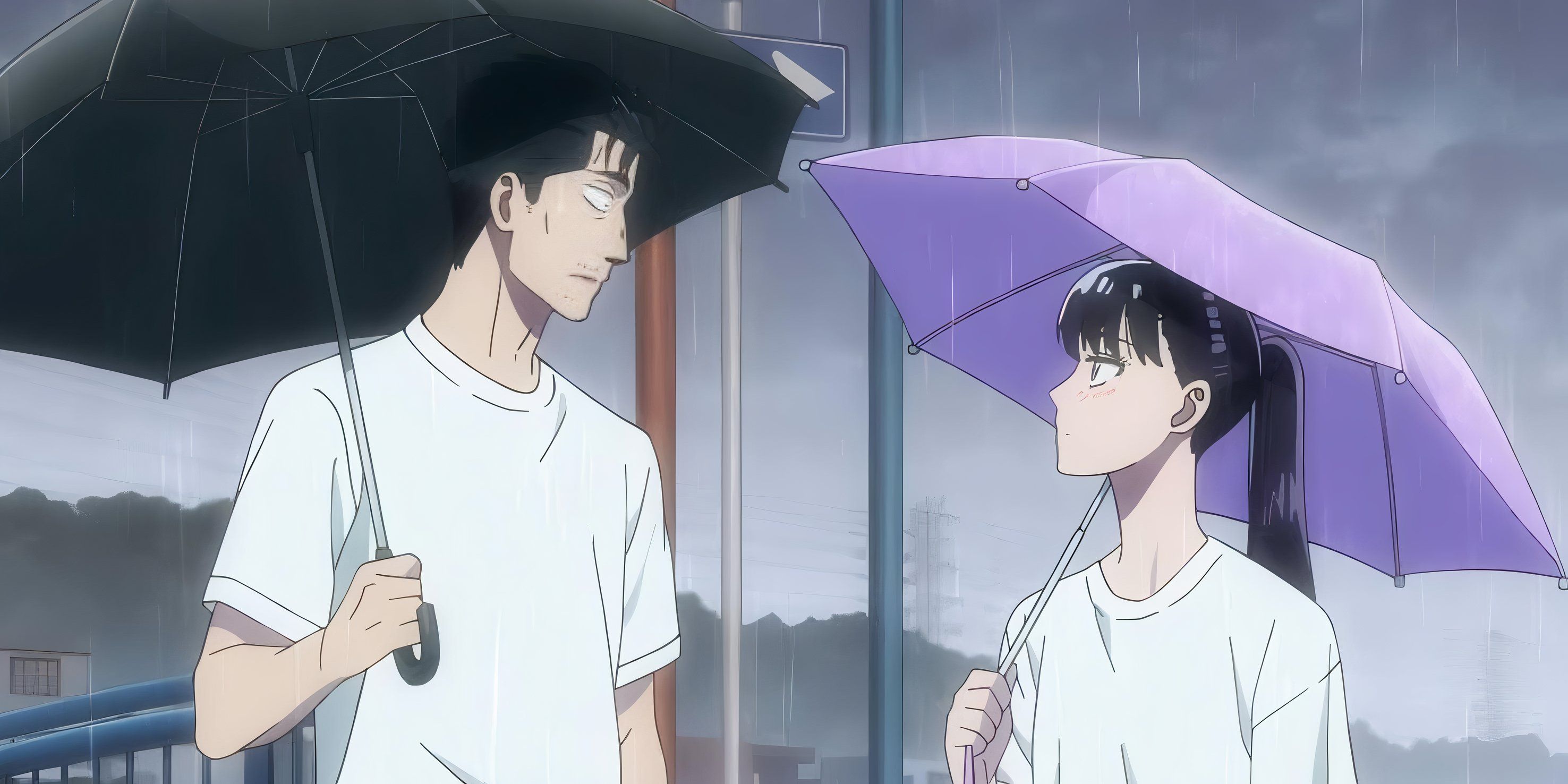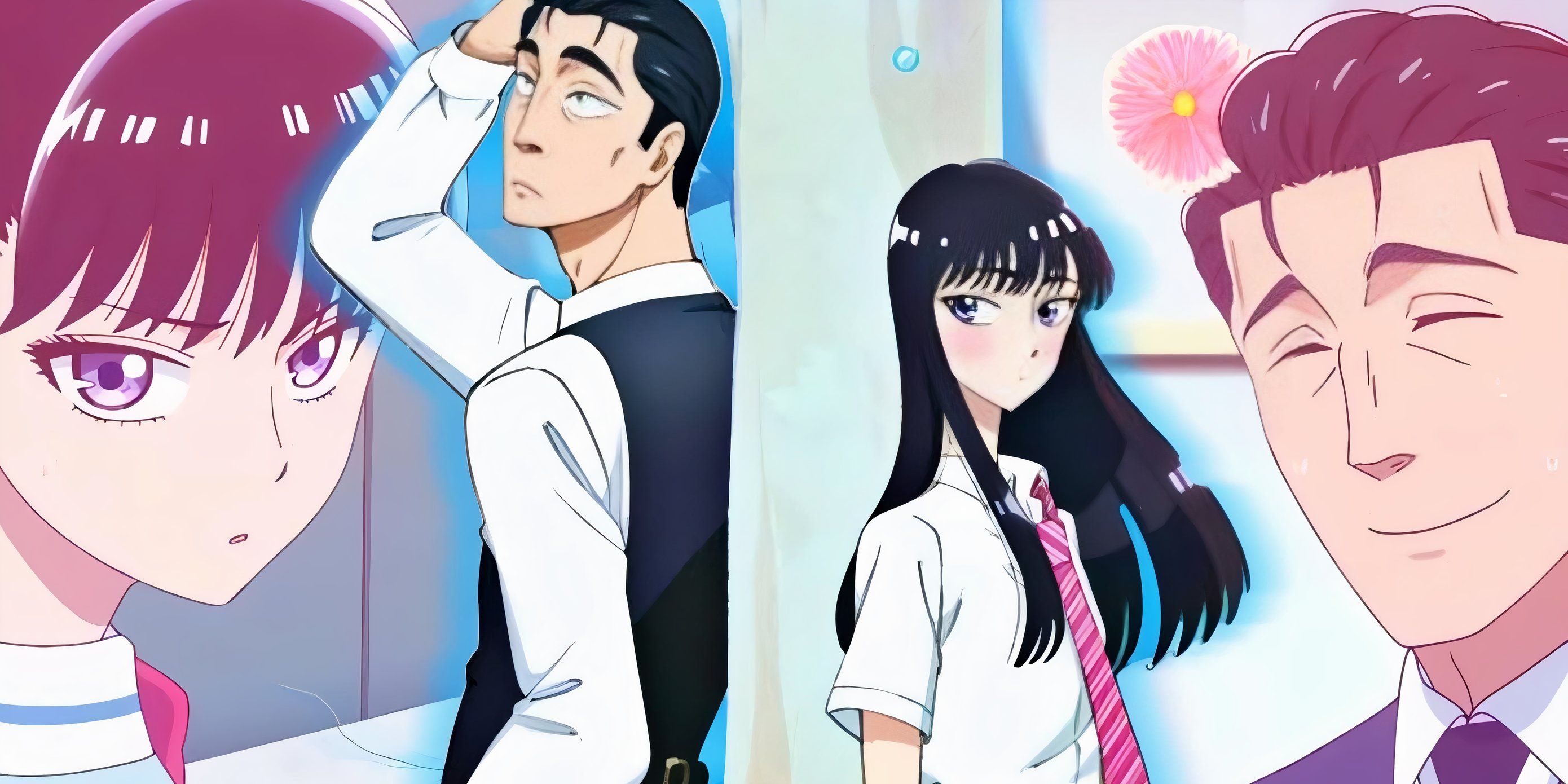
Highlights
- After the Rain challenges age-gap romance stereotypes, focusing on personal growth and emotional complexity.
- The series goes beyond traditional romance, exploring mentorship, passion for hobbies, and lost dreams.
- Characters are authentically portrayed with depth and complexity, navigating messy emotions and ethical dilemmas.
As someone who has spent countless hours immersed in the diverse world of anime, I can confidently say that “After The Rain” is one of the most thought-provoking series to come out in recent years. This show masterfully navigates the complexities of human emotions and relationships, challenging stereotypes while delving into themes of personal growth, mentorship, and ethical dilemmas.
Rarely do seinen romance anime portray the intricacies of human emotions as gracefully as “After the Rain”. The narrative revolves around Akira Tachibana, a track star for her high school who is forced to halt her activities due to an injury. She finds herself working at Garden Cafe where she becomes smitten with Masami Kondou, her 45-year-old manager. His compassion captivates her, causing her to question and reevaluate her understanding of love and relationships.
Many people might decide not to watch this show just from reading its summary. When a young girl is involved with an older man, it can be off-putting and these types of shows often delve into erotic themes, making viewers hesitant about the plot. However, After the Rain cleverly defies all assumptions surrounding age-gap romances by providing a story that goes far beyond provocative literature.
The series “After the Rain” isn’t about deceit or illicit passion; rather, it delves into personal development, recovery, and the unforeseen bonds that influence our lives. This show handles its characters and themes with a remarkable level of compassion and complexity. By skilfully weaving together controversial themes, “After the Rain” demonstrates that compelling storytelling can transform potentially contentious subjects into something profoundly moving and enlightening. It encourages viewers to scrutinize beyond initial impressions and appreciate the intricacies of human feelings, particularly those associated with love and relationships that don’t adhere to traditional norms.
After The Rain Goes Beyond Surface-Level Romance

The unique quality of this anime lies in its raw portrayal of unrequited love, steering clear of overused cliches. The affection Akira feels for Masami isn’t romanticized or vilified but depicted as a genuine emotional journey, filled with its intricacies and paradoxes. This authentic representation enables viewers to connect with Akira’s predicament, regardless of their personal views on the possible relationship.
While primarily marketed as a romance story, “After the Rain” delves into love in ways that transcend romantic feelings. It emphasizes the intense devotion towards hobbies and professions, a kind of love seldom highlighted in romantic narratives. The narrative explores the anguish of unfulfilled dreams, as depicted by Akira’s thwarted athletic career and Masami’s suppressed writing ambitions. These suppressed passions significantly shape their characters, influencing their actions and shaping their relationships, even though there is an age gap between them. The series poses a thought-provoking question: Is it wiser to persist in chasing dreams against the odds, or to relinquish them before they rob us of our life’s essence?
The Many Faces of Love
After the Rain steers clear from the common anime trope of idealistic romantic love, instead emphasizing how individuals can significantly shape each other’s lives through non-traditional relationships. While the fate of Akira and Masami regarding their relationship may be a secret to maintain, their bond transcends romance as it delves into aspects such as mentorship, motivation, camaraderie, and above all, empathy.
The difference in the way Akira and Masami express their emotions significantly enhances the drama. Akira openly shares her feelings in a sincere manner, whereas Masami tends to deceive himself when dealing with his own emotions, which often creates a tense emotional atmosphere in the story. This conflict results in scenes of both annoyance and understanding for the characters.
The intriguing aspect might be Masami’s personal dilemma regarding the suitability of his relationship with Akira. He grapples with moral questions about pursuing a romantic connection with someone so young, and the series doesn’t hesitate to portray these complex ethical issues inherent in its plotline. This moral layer gives their interactions depth, challenging both characters to confront deep truths about themselves.
How After The Rain Focuses On Real People With Real Feelings
Following the Rain excels in portraying its characters, providing depth and complexity that is seldom found in anime. These characters aren’t stereotypes commonly seen in seinen; instead, they are complex, messy, and multi-faceted. For instance, Akira’s affection for Masami is not idealized; it is raw, intense, and accurately represents the emotions of a teenager. The series does not pass judgment on her; rather, it invites us to view the world through her perspective, with an emphasis on showcasing her youthful exuberance and inexperience in love. The series does not avoid depicting her confusion and vulnerability, making her relatable even within the unique circumstances presented.
Masami Kondou is skillfully developed as a character, avoiding stereotypes of being either an unsettling elderly man or a flawless gentleman. Instead, he’s depicted as an individual grappling with his personal baggage, striving to make the right choices amidst lost aspirations and grown-up obligations. His compassionate demeanor and personal struggles lend depth to what could have been a one-note character. The series delicately handles his past ambitions, present duties, and ethical quandaries.
Just as these secondary characters – Haruka Kyan, Chihiro, and Yuta – are not simply used as tools within the plot, they also have their own distinct stories that complement the main narrative. Their tales offer a glimpse into the lives of Akira and Kondou beyond their romantic connection.
WIT Studio Brings Excellent Visual Storytelling to the Plate
Let me clarify, “After the Rain” doesn’t just delve into intense themes; it also includes some delightfully humorous scenes that prevent it from becoming a continuous emotional rollercoaster. This balance is what makes the show engaging episode after episode. The narrative style of this anime is impressive because it’s both subtle and powerful, skillfully using visual storytelling to create an impact. Instead of providing heavy-handed explanations, the series relies on its audience to understand and interpret these moments themselves.
Among all possible studios for this adaptation, Wit Studio might not have been the first choice for a seinen drama. However, WIT’s exceptional work in bringing the characters and their world to vivid life is truly commendable. The careful depiction of scenery and character expressions intensifies the emotional resonance of crucial scenes. The animation’s high quality transforms ordinary moments into visually captivating sequences, enriching the narrative experience.
“The series ‘After the Rain’ might not appeal to everyone, given its themes of age-gap relationships and Seinen anime style. However, it’s worth noting that this show transcends these common tropes. For viewers who appreciate anime that delve into human emotions akin to ‘Given’, ‘After the Rain’ demonstrates similar emotional intelligence, addressing intricate feelings with sensitivity and subtlety.”
Read More
- LUNC PREDICTION. LUNC cryptocurrency
- SOL PREDICTION. SOL cryptocurrency
- BICO PREDICTION. BICO cryptocurrency
- BTC PREDICTION. BTC cryptocurrency
- USD ZAR PREDICTION
- VANRY PREDICTION. VANRY cryptocurrency
- USD CLP PREDICTION
- WQT PREDICTION. WQT cryptocurrency
- BLACK PREDICTION. BLACK cryptocurrency
- USD COP PREDICTION
2024-08-17 21:34